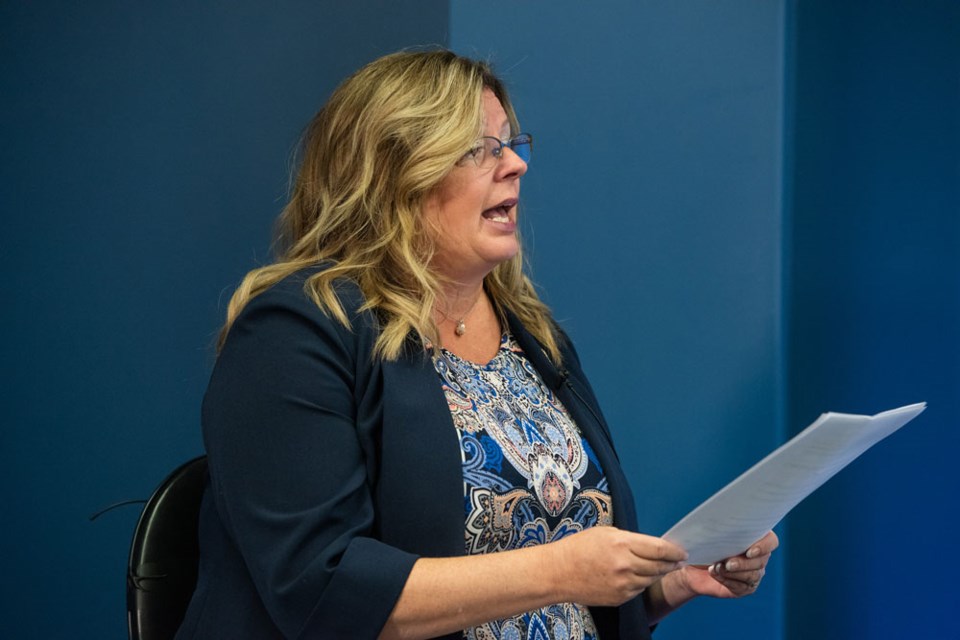Members of Estevan city council were able to direct questions to Estevan MLA Lori Carr during Monday night’s meeting.
Questions not only dealt with issues facing the community, but Carr’s work in the legislature and the ongoing COVID-19 pandemic.
Councillor Shelly Veroba started off by asking Carr about basing COVID restrictions on the number of cases in the area, rather than the provincial total. Veroba noted that there were just two active cases in South East Zone 4, which includes Estevan, on Monday.
Zone 4 covers a large area had has a population of more than 31,000 people.
“I’ve been hearing from quite a few people in the southeast. Basically they feel very restricted when they have a low case number,” said Veroba.
Carr said it’s a question she has heard before, and it’s something Carr said she has advocated for because our case load is so low. But many believe that we’re in this together as a province, so the same rules should apply across the province.
If restrictions were eased or lifted here, there could be more people coming here.
“That’s how the virus travels. Right now it’s not happening that way, but it’s something that I do continue to advocate for, simply because of the great work that’s been happening in the south and our low numbers.”
Veroba countered there’s a social responsibility of each person to ensure that people don’t put others at risk.
Councillor Veroba also wanted to know about access to mental health. She hears from people who are looking for help but have to wait four or five months, unless they are going to harm themselves, in which case they receive immediate attention.
Carr said the province is always looking for more psychologists within the province, but she’s not sure if they have any openings within the region.
“It is something that we’re continuously hearing about, so we continue to try to recruit those professionals within the entire province,’ said Carr.
The province has seen an increase in people looking for services and it’s put pressure on community-based organizations, who have stepped up to meet initial needs.
Mental health, addictions and Carr’s work as social services minister also came up. Councillor Kirsten Walliser wanted to know about housing, community living, people with disabilities and child protection.
Carr said the budget in April will provide answers to those questions.
“I actually have had the opportunity to be in contact with some of our community-based organizations and have had meetings with them,” said Carr.
Through these meetings, it helps the government to become aware of any needs or gaps within the system, or requests that might come up.
Walliser addressed the opiate crisis and overdose deaths in the province. Carr said a one size fits all approach doesn’t work, so they continue to collaborate with stakeholders across the province.
“One of the key actions that we’ve actually taken regarding overdoses specifically is the implementation of the take-home naloxone kits, and since that program actually began in 2015 … more than 9,900 kits have been distributed, and unfortunately, 5,400 of those have been in the 2020-21 year,” said Carr.
More than 11,600 people have completed training on these kits, so they know how to administer them.
Councillor Tony Sernick wanted to know the latest on the legal battle against the carbon tax.
“We’re hoping to get some type of a judgement … within the month of February, but of course it is at the Supreme Court, and we’re kind of at the whim of when they’ll make their decision,” said Carr.
Mayor Roy Ludwig, meanwhile, wanted an update on the future of carbon capture and storage, especially with Units 4 and 5 to retire.
A decision is still a few years away, she said.
“At that point in time, we’ll weigh all the measures, obviously, between all of the different types of fuel that needs to be put in to make those work,” Carr said.
The price of natural gas will probably go up in the next three years, and Carr said that will probably “work in our faovur” when it comes to carbon capture and storage.
Carr offered her congratulations to the four new members of council, and applauded the work of the previous and the current council on economic development efforts. She is confident that a really good project will stick soon, which will result in diversification for communities.



